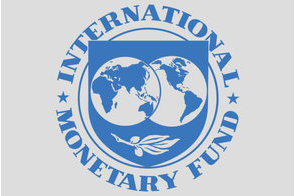Latest News
Ghana to reduce fiscal deficit to 5.3 percent of GDP in 2016

News Highlight
- Joël Toujas-Bernaté acknowledged the progress Ghana has made by reducing fiscal deficit.
- The IMF team said it expects that planned fiscal adjustment under the programme will be strengthened in 2016.
Discussions on the second review of Ghana’s financial and economic programme supported by the IMF’s Extended Credit Facility (ECF) concluded on November 5 with a statement by the International Monetary Fund’s mission staff acknowledging fiscal progress in an economy that has faced reduced revenues, slow growth and inflationary pressures.
The IMF team, led by Joël Toujas-Bernaté, visited Accra from October 21 to November 5, 2015 to discuss the implementation of the programme, the medium-term outlook and policies needed to restore debt sustainability, macroeconomic stability, and a return to high growth and job creation while protecting the poor.
In an end-of-mission statement of the IMF staff team released on Thursday and which represents preliminary findings of this mission, the IMF staff commended the Ghanaian government for a satisfactory implementation of the programme and meeting all the August 2015 performance criteria.
Joël Toujas-Bernaté acknowledged the progress Ghana has made by reducing fiscal deficit from 10.2 percent of GDP in 2014 to an estimated 7.3 percent in 2015. Despite a difficult global environment, Ghana’s economic growth is estimated at around 4 percent in the first half 2015 and inflation at around 17 percent.
“The authorities have also made progress in implementing fiscal structural reforms, albeit at a slower pace than expected in some areas. The mission welcomes the steps taken by the government in addressing payroll irregularities and advancing public financial management reform,” Toujas-Bernaté said.
The IMF team said it expects that planned fiscal adjustment under the programme will be strengthened in 2016. Given Ghana’s 2016 elections, the IMF mission staff expects additional spending, nominal increase in wage bill, as revenues for statutory funds would be earmarked. Nevertheless, the Ghanaian government plans to bring down the fiscal deficit down to 5.3 percent of GDP in the 2016 budget.
“Further fiscal adjustment along with tight monetary policy should help to restore macroeconomic stability. Building on its recent progress to improve the effectiveness of its inflation targeting framework, the Bank of Ghana remains committed to adjusting the monetary policy stance, as necessary, to bring inflation down toward its medium-term objective. This, together with the recent build-up of foreign exchange reserves, should also contribute to reducing the volatility of the cedi,” the IMF mission said.
The team met with President John Dramani Mahama; Finance Minister Seth Terkper; Bank of Ghana Governor Henry Kofi Wampah; Dr. Kwesi Botchwey, Chairman of the National Development Planning Commission; other senior officials; and the donor community.
Speaking at the opening of the first Ghana International Petroleum Conference in Accra on Friday, Finance Minister said, “We should not see the progress we are making and see it only to the macroeconomic recoveries, it is about time the government moves away from just the macro-economy but also consider the real sector of the economy.”
After the preliminary findings of this mission, the IMF staff will prepare a report that, subject to management approval, will be presented to the IMF's Executive Board for discussion and decision. The Executive Board will then consider the review by the end of the year.
Related News
Latest Blogs
- Lessons for Nigeria's climate finance strategy
- Prospects of a cruise ship port in Nigeria’s blue economy
- Insights from Alame V Shell on corporate liability for environmental damage
- Threats and mitigation strategies against plastic waste in agriculture
- Iran v Israel, what it means for Nigeria
Most Popular News
- Artificial intelligence can help to reduce youth unemployment in Africa – ...
- Nigeria’s GDP climbs to $243 billion after rebasing
- Open Society announces fellowships for four Nigerian public intellectuals
- UK borrowing blow makes tax hikes ‘inevitable’ – Nigel Green
- Renewable energy boom highlights growing regional divide
- IMF commends reform at Federal Inland Revenue Service








